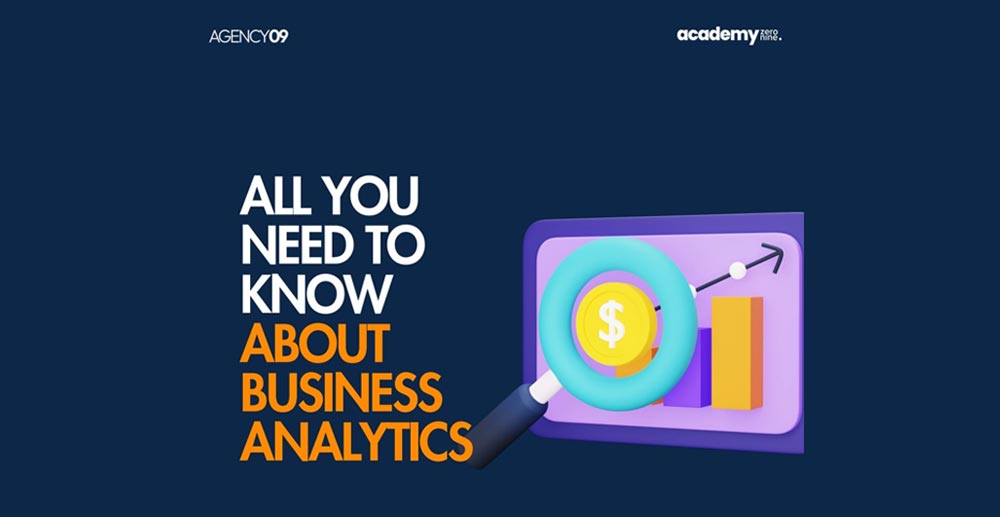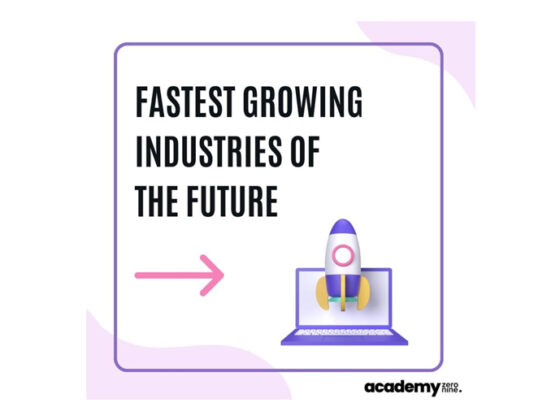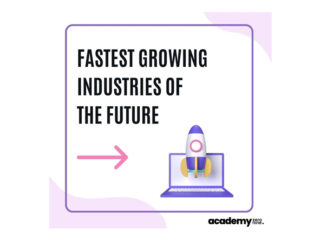In the dynamic landscape of digital marketing, AGENCY09 firmly believes in the transformative power of data. Welcome to our comprehensive guide on business analytics, an indispensable tool for businesses striving to make informed decisions and maintain a competitive edge. Whether you’re a seasoned entrepreneur or just entering the world of analytics, this guide is crafted to assist you in unlocking the full potential of business analytics.
What is Business Analytics?
Business analytics is both an art and a science, leveraging data analysis and statistical methods to extract valuable insights that guide strategic decision-making within a business. It involves the transformation of raw data into actionable intelligence, enabling businesses to move beyond instinct and intuition.
Types of Analytics:
Descriptive Analytics: This type examines historical data, summarizing key performance indicators, trends, and past insights, providing a snapshot of “what happened” to inform decision-makers.
Predictive Analytics: Peering into the future, predictive analytics utilizes models for forecasting, risk assessment, and predicting customer churn, answering the question, “What’s likely to happen?”
Diagnostic Analytics: Delving deeper into the data, diagnostic analytics aims to uncover the root causes of events by exploring correlations, anomalies, and answering the question, “Why did it happen?”
Prescriptive Analytics: Providing actionable recommendations, prescriptive analytics advises on optimal decisions through optimization and scenario analysis, guiding decision-makers on “What to do?”
Why Should Companies Use Business Analytics?
Target Marketing: Understand customer preferences, personalize marketing efforts, and increase engagement through targeted marketing strategies.
Competitive Advantage: Gain a competitive edge by identifying trends and opportunities before competitors, enabling strategic positioning in the market.
Predictive Insights: Use historical data analysis to predict future trends and behaviors, allowing businesses to be proactive in their strategies rather than reactive.
Improves Cybersecurity: Detects fraud and enhances cybersecurity by utilizing anomaly detection and pattern recognition to identify suspicious behavior and protect sensitive data.
Optimize Supply Chain: Analyze inventory, logistics, and demand patterns to minimize disruptions, reduce stockouts, and optimize supply chain efficiency.
Business Analytics in Diverse Industries:
Retail:
Optimize inventory management and improve sales forecasting by analyzing customer buying patterns, ensuring products are stocked based on demand.
Telecom:

Increase sales, reduce churn rate, and cut operational costs through efficient developments and targeted marketing campaigns.
Automobile:

Fine-tune pricing strategies, collect performance data, and predict potential vehicle failures to enhance customer satisfaction and reduce maintenance costs.
E-Commerce:

Enhance user experience and optimize conversion rates by analyzing website traffic, user behavior, and tailoring the online shopping journey.
Aviation:

Optimize flight routes, fuel consumption, crew scheduling, and ticket pricing for cost savings and improved operational efficiency.
The Fifteen Dimensions of Data Quality:
Ensuring the accuracy, completeness, and reliability of data is paramount. The fifteen dimensions, including consistency, timeliness, documentation, accuracy, precision, and security, collectively determine the quality of data for effective analysis and decision-making.
Useful Business Analytics Tools:
Qlik Sense:
https://www.qlik.com/us/products/qlik-sense
This tool allows quick decision-making with real-time data exploration, enabling collaboration across different departments without requiring extensive technical support.
SAS:
https://www.sas.com/en_in/home.html
Ideal for in-depth statistical analysis and advanced modeling, SAS caters to data scientists, statisticians, and researchers working on large-scale projects.
Tableau:
Tailored for business professionals without coding knowledge, Tableau helps develop interactive visualizations from complex datasets, facilitating fast data exploration.
RapidMiner:
A comprehensive tool for the entire Data Science lifecycle, RapidMiner caters to data scientists, business analysts, and beginners. It offers both drag-and-drop simplicity and advanced features for robust data analysis.
Closing Thoughts:
Business analytics is not merely a tool; it’s your compass in the data-driven era. Get in touch to discover how we can contribute to the growth of your business.











